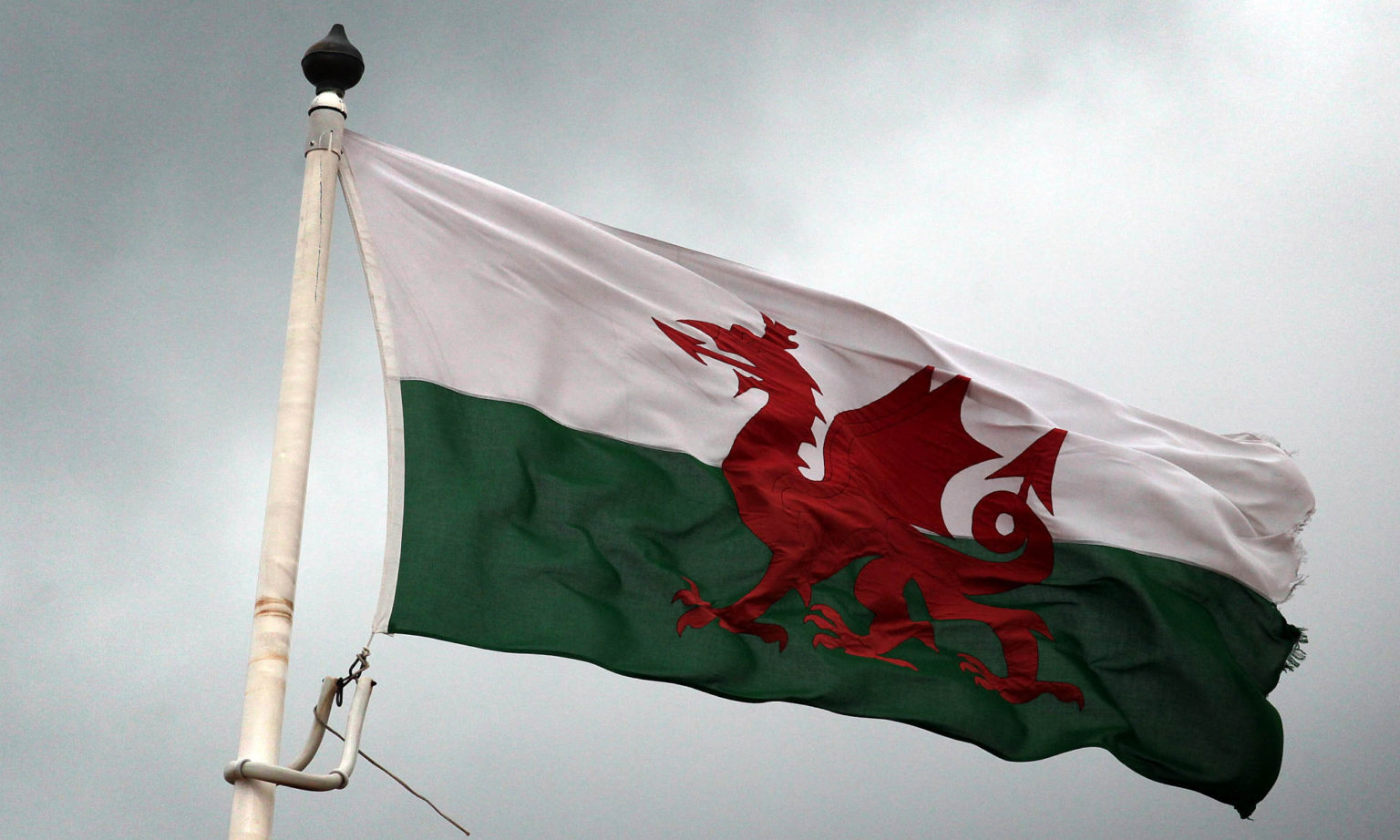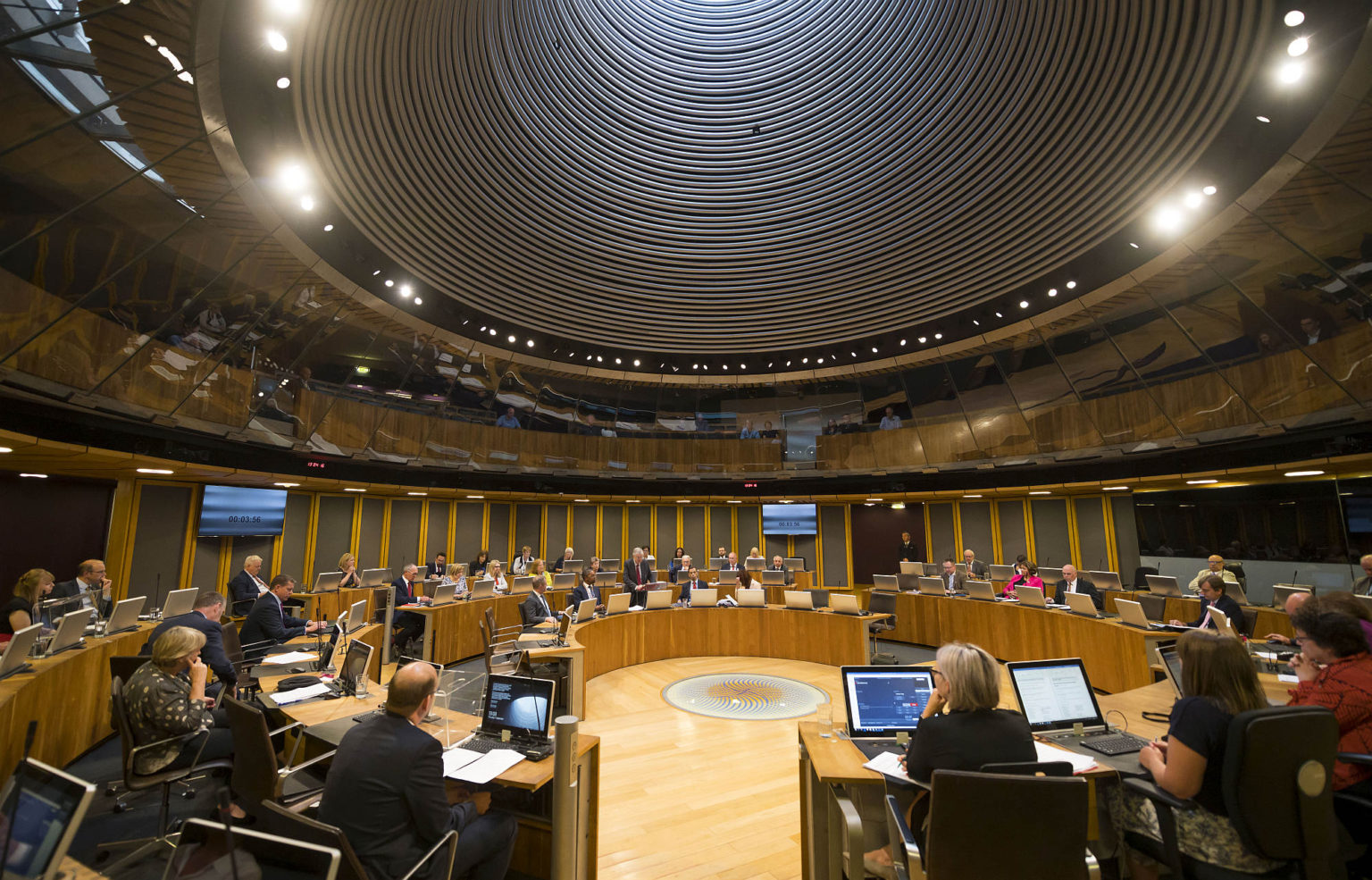
Long-read
The failure of Welsh devolution
A new political and cultural establishment is suffocating Welsh national life.
The Welsh and Scottish independence movements are enjoying record surges in support. Recent polling by Ipsos Mori shows that independence is backed by 58 per cent of Scottish voters, while November’s YouGov polls indicate a record 33 per cent support for the Welsh equivalent. Add to this the growing demands for a second Scottish independence referendum after Brexit, and the break-up of the union looks like a real possibility.
While the media have focused mainly on the prospect of Scottish independence, its Welsh equivalent deserves attention, too. This is not to say it has been completely ignored. It is just that what public discussion there has been has tended to be localised and framed almost entirely in terms of the pro-independence rhetoric of YesCymru and Plaid Cymru. So it is worth taking a more critical look at the cultural and economic challenges facing Wales as a nation.
The failures of Welsh devolution
The devolution settlement of 1998 looked like a great opportunity for Wales. It promised a more efficient and democratically representative government, with legislative control over educational, cultural and fiscal matters. And, as such, many hoped it would give Wales a chance to consolidate its sense of nationhood and develop its economy.
Such optimism soon proved misplaced. Since 1998, Wales has fallen behind other members of the union in virtually every devolved policy area. In education, the OECD has ranked Wales bottom of the UK in every education-standards survey between 2006 and 2018. It has also consistently finished below the OECD’s international average on education standards since 2009.
Likewise, the economics data make for sobering reading. According to ONS figures from 2018, 20 per cent of Wales’ total workforce relies on public-sector employment, compared to 15.6 per cent in England. And not only is Wales disproportionately reliant on public-sector employment; the private sector is also equally reliant on government subsidies and grants. This masks real market values and stifles the competition, innovation and entrepreneurship necessary to develop an economy capable of attracting investment.
Although a large public sector isn’t necessarily a problem in itself, it is in the context of Wales’ failing economy. Take Sweden, which has an even larger public sector, but whose fiscal balance was in surplus until the pandemic. The difference is that Sweden’s private sector is much freer, more competitive and more international than its micromanaged counterpart in Wales.
To add insult to injury, a 2020 report by the UK Treasury shows that public spending in Wales is 10 per cent above the UK average, at £10,929 per person. The mismatch between tax revenues and public spending in Wales is £13.7 billion, putting Wales’ net fiscal balance at a deficit of £4,376 per person, according to an ONS report from 2019.

And what of democratic representation? Has that improved since 1998? It does not look like it. Turnout for the Welsh parliament elections has declined overall during five consecutive elections, reaching as low as 38.2 per cent, and never exceeding 46 per cent. That is 10 percentage points lower on average than the turnout in Scotland for its parliament elections. Given the Welsh government has gradually acquired legislative competence in no fewer than 20 devolved areas, one would expect an overall increase in political engagement, given there is now far more at stake. But instead more and more people are turning away from the Welsh parliament.
There are further, more deeply embedded problems with democratic representation within the Welsh government itself. Take the composition of the parliament. According to a 2017 report by think-tank Gorwel, only 16 per cent of all members since 1998 came from the private sector, with 44 per cent having previously been councillors. Not only is this entirely unrepresentative of the Welsh electorate; it also suggests that parliament members lack the business insight to make reliable strategic decisions about Welsh economic matters.
The close-knit composition and employment links between the parliament, the civil service, the BBC, advisory committees and so on doesn’t only stifle public and media scrutiny of Welsh parliamentary politics. It also fuels the sense that we are witnessing the formation of a new political elite in Wales.
Additionally, virtually every single mainstream think-tank in Wales is left-leaning, further limiting political diversity, and narrowing the public discussion of current affairs.
For example, take the government plan, launched in 2017, to cultivate a million Welsh speakers by 2050. This is an undoubtedly ambitious measure. But there is little public discussion of the purpose and value of it. Indeed, studies suggest that many Welsh people do not actually think the Welsh language is an important part of their national identity.
Or take the mainstream discussion on Welsh independence itself. Again, it seems to be dominated by one point of view – that of Plaid Cymru and, to a lesser extent, YesCymru, which both talk of independence as an opportunity to rejoin the EU. This ignores the simple fact that the majority of the Welsh electorate voted for Brexit. Yet such is the narrowness of public debate that this majority perspective is missing from the establishment view of Welsh independence.
A colonial legacy?
What, then, accounts for the economic and democratic deficiencies hindering Wales’ nation-building efforts? An often-cited explanation is the legacy of English colonialism. According to this narrative, England’s colonisation and annexation of Wales in the 13th and 16th centuries had a corrosive effect on Wales’ economic and cultural development.
The extractionist economy created by the Industrial Revolution, for instance, meant that much of the profit made from Wales’ raw materials remained in England without being reinvested in Wales. Moreover, Wales’ marginalised status in the UK’s overall economic development meant that the eventual decline of heavy industry during the 20th century left Wales without the economic infrastructure to adapt.
It is also argued that the Welsh have been culturally subordinated. It is certainly true that the Welsh language was banned by the English authorities in the 16th century, and suppressed in schools up until the 20th century. As a result of this legacy, some argue, Wales has struggled to become a confident, outward-looking nation.
There is weight to these charges. But they do not explain the more immediate causes of Wales’ economic stagnation, from a lack of private-sector competition to an overreliance on Welsh government grants and subsidies. Nor does it explain Wales’ democratic deficit. After all, it would be bizarre to suggest that Wales’ political culture today – which lacks political diversity and any meaningful scrutiny of standards in government institutions and public bodies – is the product of England’s colonial oppression of Wales several centuries ago.
A more promising, but scarcely mentioned explanation, concerns the impact of the Welsh Language Act of 1993. This act, I would argue, has encouraged the culture of cronyism and groupthink that now characterises much of Wales’ public and government grant-dependent sectors.
The act has done so because it stipulated that all public bodies in Wales provide their services in Welsh as well as in English. This meant that the pool of talent from which public bodies drew was considerably more shallow than before, focused as it was on those who could speak Welsh. Indeed, as it stands right now, less than 30 per cent of the Welsh population can speak Welsh. And, given the close-knit nature of the Welsh-speaking population, it has meant that many friends and relatives have been appointed by public-sector employers. Hence the culture of cronyism.
There is certainly much more to be said about the role of cronyism in Welsh public life, particularly given the close employment links between the Welsh government, public bodies and the mainstream Welsh media. In this regard, it is instructive that over a third (22 out of 60) of members of the Welsh parliament have been employing immediate family members, between 2016 and 2019.

The prevalence of cronyism goes some way towards explaining the lack of meritocracy in Welsh public institutions, particularly in universities. Too often, employment prospects seem to depend less on what you know than who you know. Little wonder there has been a brain drain in Wales, as talented individuals find their opportunities restricted.
And, perhaps most important of all, this cronyism, fuelled in part by the Welsh Language Act, helps to explain the emergence of the collectively self-appointing Welsh political and cultural establishment.
However, the Welsh Language Act cannot explain everything. The lack of criticism, opposition and innovation in Welsh political, social and economic life long predates the enactment of the act in 1993. We should therefore consider other contributing cultural factors.
The role of Protestant Nonconformism
One plausible contributing cultural factor, which has not been considered to date, is the legacy of Protestant Nonconformism. So dominant was Nonconformism in Welsh communities throughout the 19th and 20th centuries that it would not be surprising if aspects of its influence persisted today, despite the marked decline in chapel attendance.
A particularly vivid depiction of the strength of Nonconformism in Wales can be found in Caradoc Evans’ My People: Stories of the Peasantry of West Wales (1915). There are striking parallels between Evans’ depiction of the monopoly of Nonconformism over Welsh communities, and the corresponding monopoly of the political and cultural establishment over public life in contemporary Wales. What both share is a culture in which questioning and dissent are suppressed.
My People, a collection of short stories, was written as a quasi-fictional work of literature. Yet, as John Harris explains in his 1987 introduction, Evans based each story on events recounted by the inhabitants of Rhydlewis, where the book is set. So although there is some artistic license, the stories’ depiction of the captivity of Welsh communities by the Nonconformist hierarchy has the ring of truth.
My People reveals, for instance, the systematic subordination of women, with wives chosen according to their familial wealth, and their ability to labour to the same degree as servants. In one story, a farmer goes to the market to choose a wife alongside new cattle; and, in another, a farmer, who has locked his ‘insane’ wife in an attic, takes her for a once-a-week walk at midnight in a cow’s halter – to give her an ‘airing’.
My People also captures the rigidity of an oppressive class system, that its beneficiaries went to great and sometimes highly immoral lengths to preserve, in part through the Nonconformist hierarchy. Indeed, the leadership of the chapels was often determined by social status, which itself was determined by material wealth and familial descent.
In Evans’ often comic telling, religious devotion plays a distant second fiddle to social status in Welsh Nonconformism. Yet there remains a charm to the colourful humanity surrounding the hypocrisy, duplicity, and injustices characterising the communal life of Nonconformist Wales. Evans brings this out in the dialogue, personal musings and behaviour of the rich cast of characters of My People. Moreover, Evans’ carefully engineered English prose replicates the rhythms, patterns and spirit of the Welsh language. This in itself is a remarkable artistic and sociolinguistic achievement.
As such, one would expect My People to have been celebrated in Wales as an invaluable contribution to Anglo-Welsh literature – and a refreshingly bold and innovative challenge to the cultural and class issues afflicting early 20th-century Welsh communities. Not so. From the moment of its publication, My People was denounced as obscene, and copies of it were publicly burnt in Cardiff. The police even raided one of the few bookshops that dared to stock it.
The Welsh establishment’s defensive response to Evans resembles that of contemporary Welsh commentators to often humorous jibes by English commentators towards aspects of Welsh culture. Take the commentator Rod Liddle, who in 2018 joked about the Welsh opposition to renaming the Severn bridge. The Welsh, Liddle wrote, ‘would prefer it to be called something indecipherable with no real vowels, such as Ysgythysgymlngwchgwch Bryggy’.
This prompted a Welsh media storm, with Plaid Cymru MP Liz Saville Roberts threatening legal action, and the then Welsh language commissioner Meri Huws calling for such ‘language hate’ to be prohibited. The Independent Press Standards Organisation received 80 complaints, and Arfon Jones, the North Wales Police and Crime Commissioner, launched an investigation into whether Liddle’s comments constituted a criminal offence.
The Welsh elite’s conformism
It appears, then, that elite aversion to criticism – no matter how benign or humorous – is as prevalent in today’s Wales as it was in Evans’. Add to this the lack of media scrutiny of the Welsh government, and the narrow uniform viewpoint permitted on Welsh economic and political matters in the public sphere, and the resemblance becomes striking. But how does Nonconformism’s legacy help to explain this establishment aversion to scrutiny or criticism, and the emergence of structural cronyism?
The precise nature of Nonconformism is key. The proliferation of Nonconformist denominations in 18th-century Wales marked a departure from established authority on religious and cultural matters. Unlike the Catholic and Anglican churches, there was no uniform, standardised process of education and training for Nonconformist ministers.
Admittedly, theological colleges were established in Bangor, Bala and Swansea, which promoted scholarship in a systematic manner. And 18th-century minister Gruffudd Jones made a seminal contribution, promoting high standards of literacy and Christian education in Wales, and developing a systematic body of theology.
But beyond insisting on their fidelity to certain central tenets, Nonconformist ministers were afforded a high degree of flexibility in their interpretation of scripture. This practice was legitimised by the doctrine of sola scriptura (by scripture alone), according to which the Holy Spirit guided one’s personal reading of the Bible. As a result, many ministers preached their own personal interpretations, so Nonconformism could differ from one chapel to the next.
Since there was no established authority to decide on the correct interpretation, many ministers had no choice but to feign certainty and project an artificial authority. How else could they achieve such monopoly over their communities, if those communities knew that their pronouncements were on shaky ground? Questioning and criticism therefore had to be stifled, and meritocracy limited. So it was that ministerial appointment was too often determined not by scholarly and theological merit, but rather by material wealth and kinship. Anybody who questioned, or, ironically, didn’t conform, would be suppressed and denounced.
These aspects of Nonconformist culture have arguably played a central role in Welsh national culture since the mid-19th century. Moreover, they have fed into Welsh political life, thanks to Nonconformism’s central role in the Liberal Party, and later, Labourism. Both these traditions’ deep relationship with Nonconformism helps to explain how its culture of cronyism, conformism and an aversion to criticism has been carried into the contemporary Welsh political and cultural establishment.
Today, this updated Nonconformist legacy stands in the way of Welsh nation-building. The Welsh government, public bodies and their established beneficiaries need to start embracing scrutiny, innovation and meritocracy. Their failure to do so thus far has allowed cronyism to flourish and has failed the economy. This is simply not sustainable, especially as it further encourages the Welsh brain drain, and holds back those who decide to remain.
Perhaps most pressing of all, the institutionalised aversion to criticism undermines Wales’ democratic integrity. After all, the main aim of devolution was meant to be a greater degree of democratic self-determination, which requires free and open discussion in the media and wider public sphere. To count as open, a diversity of viewpoints from every part of the political spectrum must be represented, rather than simply the collective, uniform convictions of the political and cultural establishment. Until we allow that open debate, Wales cannot become a democratic nation in any meaningful sense of the term. Amid so much focus on the future of the union, the need for critical self-reflection in Wales has never been more urgent.
Rhianwen Daniel is a PhD candidate in the department of politics and international relations at the University of Cardiff.
All photos, unless credited otherwise, by: Getty Images.
To enquire about republishing spiked’s content, a right to reply or to request a correction, please contact the managing editor, Viv Regan.







Comments
Want to join the conversation?
Only spiked supporters and patrons, who donate regularly to us, can comment on our articles.